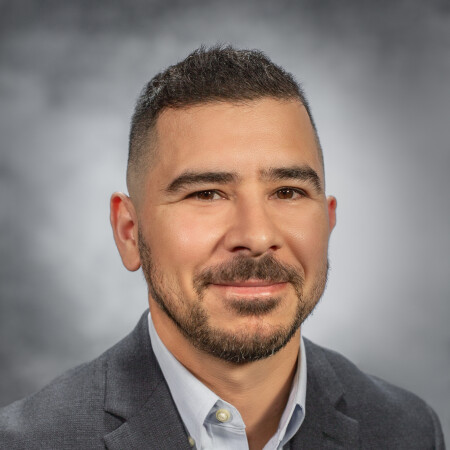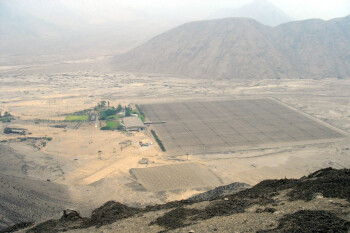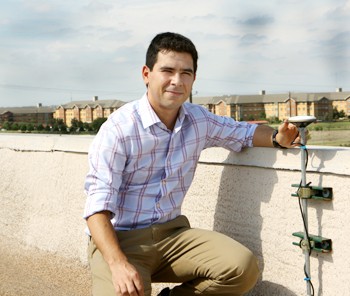PhD - Electrical and Computer Engineering
Cornell University, Ithaca, NY - 2008

Fabiano Rodrigues
Fellow, Eugene McDermott Professor (2019 - 2025)
Professor – Physics – Space Sciences
Affiliated Faculty - Electrical and Computer Engineering
Professional Preparation
MS - Space Sciences
National Institute for Space Research - INPE, Brazil - 2003
National Institute for Space Research - INPE, Brazil - 2003
BS - Electrical Engineering
Universidade Federal de Santa Maria - UFSM, Brazil - 2001
Universidade Federal de Santa Maria - UFSM, Brazil - 2001
Research Areas
Some of the research areas that I am currently interested are: Physics of the upper atmosphere, ionospheric electrodynamics and irregularities, development and application of remote sensing techniques for fundamental and applied studies of the upper atmosphere, numerical modeling studies of the thermosphere and ionosphere, and studies of ionospheric irregularity effects on signals used by global navigation satellite systems (GNSS).Publications
On the Extraordinary L‐Band Scintillation Event Observed in the American Sector During the 23–24 March 2023 Geomagnetic Storm 2025 - Journal Article
Evidence of Substorm‐Driven Penetration Electric Field Contributions to Low‐Latitude Phenomena: Enhanced Upward Drifts, Plasma Bubble Development and Severe Scintillation 2025 - Journal Article
Characterization of Scintillation Events With Basis on L1 Transmissions From Geostationary SBAS Satellites 2024 - Journal Article
On the estimation of scintillation severity using background F-region peak densities: description and example results using GOLD observations 2024 - Journal Article
First climatology of F-region UHF echoes observed by the AMISR-14 system at the Jicamarca radio observatory and comparison with the climatology of VHF echoes observed by the collocated JULIA radar 2024 - Journal Article
First Observations of Severe Scintillation Over Low‐to‐Mid Latitudes Driven by Quiet‐Time Extreme Equatorial Plasma Bubbles: Conjugate Measurements Enabled by Citizen Science Initiatives 2024 - Journal Article
Student-led design, development and tests of an autonomous, low-cost platform for distributed space weather observations 2023 - Journal Article
Severe L-band scintillation over low-to-mid latitudes caused by an extreme equatorial plasma bubble: joint observations from ground-based monitors and GOLD 2023 - Journal Article
Awards
CAREER - NSF [2016]
Young Investigator Program - AFOSR [2013]
Appointments
Professor
The University of Texas at Dallas [2025–Present]
The University of Texas at Dallas [2025–Present]
Associate Professor
The University of Texas at Dallas [2018–2025]
The University of Texas at Dallas [2018–2025]
Assistant Professor
The University of Texas at Dallas [2012–2018]
The University of Texas at Dallas [2012–2018]
Research Engineer
ASTRA, LLC [2008–2012]
ASTRA, LLC [2008–2012]
Graduate Res. Asst.
Cornell University [2003–2008]
Cornell University [2003–2008]
Research Associate
The University of Nottingham, UK [2003–2003]
The University of Nottingham, UK [2003–2003]
Graduate Res. Asst.
National Institute for Space Research - INPE, Brazil [2001–2003]
National Institute for Space Research - INPE, Brazil [2001–2003]
News Articles
Scientist To Lead Expansion of Observatory with World’s Largest Radar
 Dr. Fabiano Rodrigues, associate professor of physics at The University of Texas at Dallas, has received a multimillion-dollar federal grant to expand the capabilities of an observatory in South America that serves experimental investigations of the upper atmosphere and of the space near Earth, or geospace.
Dr. Fabiano Rodrigues, associate professor of physics at The University of Texas at Dallas, has received a multimillion-dollar federal grant to expand the capabilities of an observatory in South America that serves experimental investigations of the upper atmosphere and of the space near Earth, or geospace.The five-year, $2.8 million grant from the National Science Foundation (NSF) Major Research Instrumentation (MRI) Programwill be used to develop and deploy two large radio receiving stations that will augment the observational capabilities of the Jicamarca Radio Observatory, located near Lima, Peru. The instrumentation will allow researchers to gather more detailed information about the Earth’s atmosphere and ionosphere, a region where Earth’s upper atmosphere meets outer space.
The Jicamarca Radio Observatory, equipped with the world’s largest radar, is a facility of the Geophysical Institute of Peru that is funded through a cooperative agreement between the NSF and Cornell University. Rodrigues earned his PhD in electrical and computer engineering from Cornell using the observations of the ionosphere made by the Jicamarca radar system and has been an active scientific user of the facility since then. The grant will allow the largest expansion of the observatory since its foundation in the early 1960s.
“This expansion is a result of an international, multi-institutional collaboration with the goal of augmenting the current observational capabilities of the observatory,” said Rodrigues, who is also a Fellow, Eugene McDermott Professor. “The collaborators will not only contribute with scientific and technical expertise but also with local infrastructure and services that are essential for this type of effort.”
New Prof's Research Looks Skyward for Insights on Ionosphere
 Dr. Fabiano Rodrigues joined the UT Dallas faculty this year as an assistant professor in theDepartment of Physics and in the William B. Hanson Center for Space Sciences, a research center in the School of Natural Sciences and Mathematics. One of the factors that attracted him to the University was the institution’s long history of research and expertise in atmospheric and space studies. Rodrigues’s areas of expertise include remote sensing of the upper atmosphere using ground-based radars and GPS signals. Rodrigues has conducted research at some of the largest and most sensitive radio observatories in the world, including theArecibo Observatory in Puerto Rico and the Jicamarca Radio Observatory in Peru. He said he plans to engage students in on-site training and learning how experiments are done at these facilities. Rodrigues is currently working on a project that involves deploying special GPS receivers around campus and the surrounding area to investigate the upper atmosphere and its effects on communications and navigation systems. A native of Brazil, Rodrigues earned his PhD in electrical and computer engineering from Cornell University. His research has been funded by NASA, the National Science Foundation and the Air Force Office of Scientific Research.
Dr. Fabiano Rodrigues joined the UT Dallas faculty this year as an assistant professor in theDepartment of Physics and in the William B. Hanson Center for Space Sciences, a research center in the School of Natural Sciences and Mathematics. One of the factors that attracted him to the University was the institution’s long history of research and expertise in atmospheric and space studies. Rodrigues’s areas of expertise include remote sensing of the upper atmosphere using ground-based radars and GPS signals. Rodrigues has conducted research at some of the largest and most sensitive radio observatories in the world, including theArecibo Observatory in Puerto Rico and the Jicamarca Radio Observatory in Peru. He said he plans to engage students in on-site training and learning how experiments are done at these facilities. Rodrigues is currently working on a project that involves deploying special GPS receivers around campus and the surrounding area to investigate the upper atmosphere and its effects on communications and navigation systems. A native of Brazil, Rodrigues earned his PhD in electrical and computer engineering from Cornell University. His research has been funded by NASA, the National Science Foundation and the Air Force Office of Scientific Research.